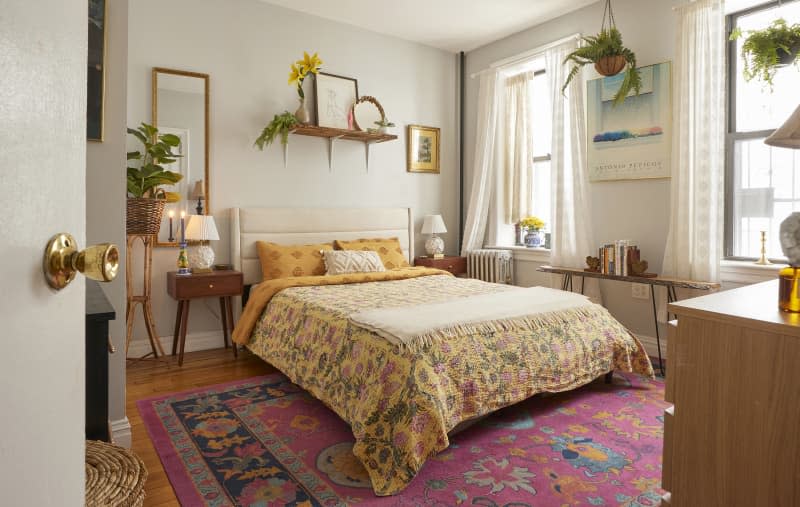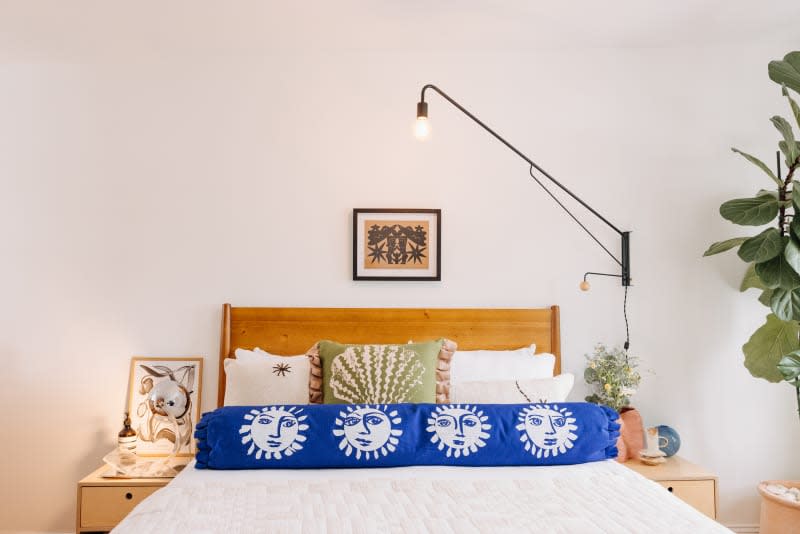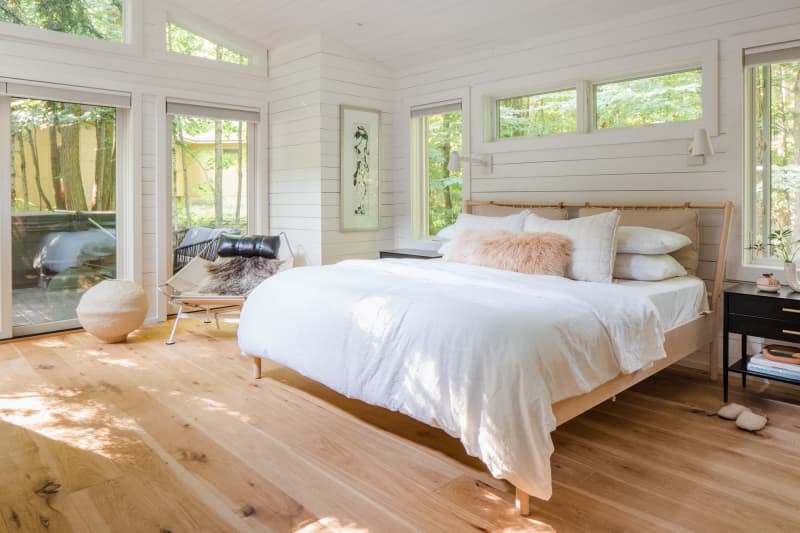10 Sleep Apps That Can Finally Help You Get a Good Night’s Sleep

If you’ve ever found yourself lying awake in bed, cycling through counting sheep and scrolling on your phone, you know how hard the seemingly simple task of falling and staying asleep can be. If you’re ready to break out of this cycle, it may be time to try out some sleep apps to help you get that good sleep you’ve been missing out on.
According to Dr. Meredith Broderick, a neurologist with an emphasis on allopathic sleep medicine, “A lot of people think of their bed as a place to relax.” But, she says, your bed should be designated for sleep and sleep alone. One tangible way to set boundaries if you want to sleep well is by using sleep apps. Read on for 10 of the best sleep apps out there — plus a few tips to better understand why, how, and when to use them to improve your sleep patterns.
Who should use sleep apps?
In a study conducted by the U.S. News & World Report, 38% of Americans reported that they would give up going out to eat in exchange for perfect sleep. The same survey found that 21% of U.S. adults rarely or never wake up feeling well-rested, with 29% reporting that they engage in screen time while falling asleep.
So, who’s the ideal candidate for sleep apps? “Someone that is interested in wellness, promoting their health, getting their blood pressure down, improving their mental health, just thinking about the long-term,” says Dr. Broderick. “It’s someone who cares about being well.”

What features should you look for in a sleep app?
Sleep apps can be categorized by three purposes: sleep trackers, specialized sleep issues, and insomnia. While sleep tracker apps allow you to notice patterns in your sleep, specialized apps help target variables like snoring and sleepwalking. Users with chronic sleep disorders like insomnia may pivot to an app that directly targets their condition.
To help you find the right kind for you, we’ve lined up a variety of 10 of the best sleep apps that can help fight off whatever’s keeping you up at night.
10 Best Sleep Apps
1. Breethe
If anxiety is what’s keeping you up at night, consider using the Breethe app. Depending on what’s keeping you up at night — your boss, the complexities of adulthood, tax season — Breethe has specialized guided meditations to keep your mind at ease. You can also use it throughout the day, with meditations like “Start Your Day” and “Take a Break” in addition to “Go to Sleep.” The app grants users a 14-day free trial before charging $12.99 per month.
2. CBT-i Coach
Cognitive Behavioral Therapy can be a great solution for those with chronic insomnia, and with the CBT-i Coach app, you can improve your sleep environment at home, too. The app helps users understand Cognitive Behavioral Therapy insomnia, develop a positive sleep environment, track wake and sleep times, and wind down before bed. While it’s not a replacement for face-to-face therapy, the free app is a great place to practice achieving high-quality sleep.

3. Headspace
The Headspace app provides users with mindfulness tools, guided meditations, focus exercises, and more. That way, you can get to the root of your sleep issues by addressing factors like mental health and self-soothing skills. After a seven-day free trial, the app starts at $12.99 a month.
4. Ozlo Sleep
Ozlo Sleep’s goal is to help you figure out what’s keeping you awake. All you have to do is put in your Ozlo sleepbuds (soft and comfortable so they don’t disrupt your sleep) and let the app do its magic. Ozlo will know once you’ve fallen asleep, note any disturbances, and create an itemized report that offers some sleep-enhancing suggestions like noise masking, relaxation, and ADHD sleep aids.
5. Pzizz
Using their on-staff researchers, Pzizz creates soundscapes scientifically designed to help users fall and stay asleep. Whether you’re tucking yourself in for the night or taking a quick power nap, Pzizz has a variety of dreamscapes, focuscapes, narrations, and more that are tailored for the occasion. Pzizz starts at $7.99 a month.
6. SnoreLab
If you’re ready to put an end to your snoring, SnoreLab might help you do it. The app provides anti-snoring remedies and techniques to help you sleep without disruption. All you have to do is select relevant factors (deviated septum, alcohol intake, etc.), find or create a few remedies, and track your snoring patterns while you’re asleep. In the morning, you’ll get a rest rating to better understand how snoring is affecting your sleep. The app is free to download and use, but for $5.99 a month you can access premium features.

7. ShutEye: Sleep Tracker
Rather than monitoring your overall sleep, ShutEye uses AI to track and analyze your sleep cycles and environmental distractions, and home in on how you can better tackle insomnia. If you’re not too keen on having real humans track your sleep, this AI-powered app might be the solution to your sleepless nights. After the seven-day free trial, ShutEye offers a $9.99 monthly subscription.
8. Stellar Sleep
Unresolved psychological issues can play a major role in insomnia, and Stellar Sleep is here to change that. With guided programs and your very own sleep diary, Stellar Sleep can guide you to better sleep by helping you understand where your insomnia comes from, how it manifests, and the coping mechanisms you need to combat it. After a seven-day free trial, the app charges $63 per month for three months.
9. Slumber
Audiobooks, meditations, soundscapes, and music are some of the easiest ways to create a good sleep environment. Slumber packs all of the above into one app. You can choose between ASMR, guided visualizations, muscle relaxation, hypnosis, and so much more to help put you to sleep. While the app is free, you can pay $9.99 a month for full access to premium content.
10. Pillow
Your pillow has a front-row seat to the highs and lows of your sleep cycle, and with the Pillow app you can too. The app measures how long you sleep, including when you’re in REM, deep sleep, light sleep, and those moments when you wake up in the middle of the night. Once you’re awake, the app rates the quality of your sleep and gives you a few notes on how to improve. The premium Pillow app costs $6.99 a month.

